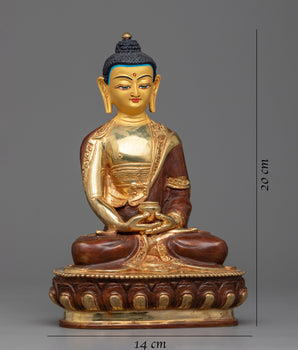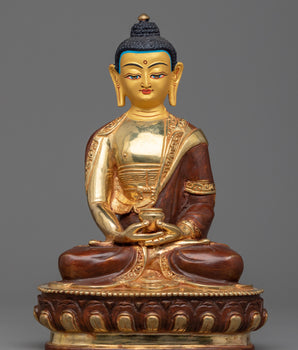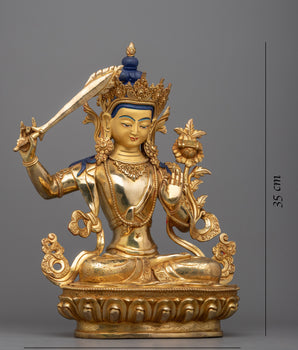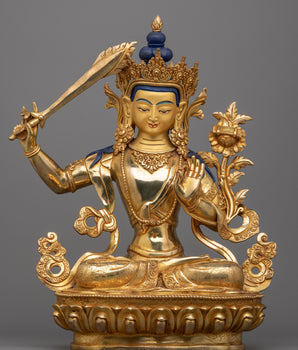Mahakala Statue
Mahakala Statue
Mahakala: The Vigilant Guardian Deity in Tibetan Buddhism
Background and Significance:
Mahakala, often called "The Great Black One," is a potent and prominent deity in Tibetan Buddhism. Belonging to the category of Dharmapalas, guardian deities entrusted with preserving Buddhist teachings (Dharma), Mahakala holds a special place in the Vajrayana tradition, particularly influencing the Nyingma and Gelug schools of Tibetan Buddhism.
Significant for his role as a wrathful guardian, Mahakala is invoked to clear obstacles, subdue evil forces, and offer guidance and support to practitioners. The practice of Mahakala is integral to Tibetan Buddhist rituals, especially in deity yoga and safeguarding the teachings.
Attributes and Iconography:
Mahakala is typically depicted as a wrathful deity with a black or dark blue complexion, symbolizing his transcendence of ignorance and ego. Adorned with a crown of skulls, a necklace of freshly severed heads, and three eyes, he represents victory over the cycle of birth and death. Standing over a corpse or symbolic obstacle, his numerous arms wield implements like a trident, chopper, skull cup filled with blood, and a damaru (small drum), signifying his ability to dispel illusions, eliminate hindrances, and protect the Dharma.
Associated Stories and Beliefs:
Mahakala assumes various forms and has distinct subtypes, with the Four-Armed Mahakala being widely known for swift assistance in overcoming obstacles. Practitioners invoke Mahakala through rituals, mantras, and imagery to seek blessings and protection.
Strongly linked to removing obstacles on the spiritual path, Mahakala aids practitioners in overcoming inner and outer hindrances, facilitating progress toward enlightenment. His invocation is particularly common during significant Tibetan Buddhist rituals, empowerments, and retreats, ensuring the efficacy and integrity of these practices.
In Conclusion:
Mahakala, the Great Black One in Tibetan Buddhism, emerges as a potent and indispensable figure. His significance lies in his unwavering defense of the Dharma and its adherents. Despite his wrathful appearance, Mahakala embodies the wisdom and compassion of enlightened beings, utilizing his strength to eliminate obstacles and guide sincere seekers on their spiritual journey.

Your cart is currently empty.
Start Shopping
































































